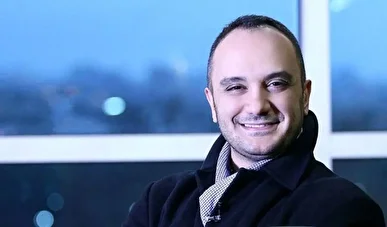David Hearst on David Hirst: A dissenting voice whose words ring as true as ever
David Hearst on David Hirst: A dissenting voice whose words ring as true as ever

I look back to the days of the Guardian during which David Hirst, who died on Monday at the age of 89, was its distinguished Middle East editor with nostalgia.
It was a newspaper that took non-Western opinion seriously and cared deeply about the Middle East and foreign news in general.
It had one correspondent in Beirut, two in Jerusalem, and stringers in every Arab capital. The foreign desk had a dedicated team of sub-editors.
But it also had its weird and wonderful ways.
It was a writer’s newspaper, and correspondents set the agenda for the news desk; not, as it is today, the other way round. Our man in Paris was unreachable because he refused to have a telephone. Others took time to file, sometimes weeks.
The Guardian was so full of typos, with a printing press in Gray’s Inn Road that expired regularly after the first edition, that it soon became known as the Grauniad.
It had one other quirk. It employed journalists of the same name. There were two Paul Websters, one our Paris correspondent and the other the foreign editor.
There were also two David Hirsts, or at least that is how it appeared in Arabic.
There was the man I referred to as “the real David Hirst”, the distinguished Arabist who wrote the seminal work The Gun and the Olive Branch, who escaped kidnap twice in Beirut at the height of the civil war, who broke exclusives on the sacking of Hama by Hafez Assad and the gassing of the Kurds in Halabja by Saddam Hussein.
And there was me: young, willing and ignorant. The family name had been changed hurriedly in 1943 aboard a British frigate heading for the landing beaches near Salerno in Italy during the Second World War.
A captain in the British army, my father was told by his major that British troops could not go into combat led by an officer with a German name.
An Austrian Jew, my father was doubly insulted. He anglicised Hirshtritt to Hearst to distinguish himself from the riffraff of Hirsts and Hursts all around him.
Foreseeing the reputational damage I could do to my more distinguished and wholly innocent colleague, I chose a different area of the world to operate in and learned Russian.
The doppelganger effect
But, as it does, the Middle East dragged me back into its centre of gravity like a force of nature, and rather like the plot of Evelyn Waugh’s Scoop, the two Hirsts became fused into one in the minds of many of our readers.
I used to receive his BBC cheques. An Iranian diplomat I was interviewing refused to believe, after multiple denials over 90 minutes, that I had not escaped kidnap in Beirut.
A room full of admirers in Ottawa, each bearing a copy of The Gun and Olive Branch for me to sign, was about to gather until I cottoned on and stopped it. The internet only made the doppelganger effect worse.
Hirst’s book grew in stature and, as one edition succeeded another, it grew in size as well as by reputation
Hirst and I only interacted briefly towards the very end of his long career on the Guardian, and, as it turned out, the end of mine too.
In the Blairite Britain of the late 1990s and early 2000s, the Guardian made a conscious decision to turn its back on the left, the unions, and its own non-conformist Mancunian roots, to seek brighter horizons in the US.
This failed, with much gnashing of teeth over the costs involved. The US had its own liberal media, thank you very much, and did not want to be lectured on how to vote by the Brits.
After several attempts at landing on the East Coast, the Guardian was left floating in mid-Atlantic, rather like Blair himself.
In consequence, Hirst found it difficult to get published in the newspaper to which he had filed for four decades.
His long, academic essays were passed around from foreign to feature desk and back again like hot potatoes no one wanted to handle.
This was richly undeserved because, while they did not fit easily into the tighter and more rigidly designed Berliner format, they were brilliant works of analysis and journalism.
Not one word was out of place in his famously long sentences and woe begat the sub-editor who moved a comma.
Hirst was of that fearless generation who were unfazed by fashion, popular opinion, or orthodoxy.
The Gun and the Olive Branch
The Gun and the Olive Branch: The Roots of Violence in the Middle East, to give it its full title, is a merciless and clinical denunciation of Zionism as a settler colonial project.
It was published at the least favourable moment for such an undertaking, in 1977, the year that Egyptian President Anwar Sadat visited Jerusalem and the world was feverish about peace in our time.
Hirst was one of the few who dissented. His book was denounced by the very few newspapers that dared print a review.
The only major newspaper to touch it at the time, the Washington Post, called it “an accusative sniffle amid the open chords of an anthem of hope”.
Hirst’s words do read as true and as accurate today as they did when they were written
The New Republic called it “the most malignantly anti-Israeli book ever to be published in English by someone who claims to be a serious commentator”.
In contrast, when Joan Peters published her dramatic rewriting of history, From Time Immemorial: The Origins of the Arab-Jewish Conflict over Palestine, to claim that the Palestinians were no more native to the land than the Zionist immigrants were, her work was lionised.
For Ronald Sanders, author of a study of the Balfour Declaration, her work “could change the entire polemic over Palestine”.
Martin Peretz, editor of the New Republic, declared that “it will change the mind of our generation. If understood, it could also affect the history of the future”.
How little has changed. But Hirst’s book grew in stature and, as one edition succeeded another, it grew in size as well as by reputation.
Oslo Accords
Hirst wrote of the Oslo Accords that PLO leader Yasser Arafat signed with Israeli Prime Minister Yitzhak Rabin in September 1993: “It was the first formal step in the process of de-colonisation to which all such European colonial enterprises had submitted, and yet at the same time, the Jewish State being that great exception which proves the rule, it was also to be a last and very limited one.
“For it was of course the Palestinians who, on any true historical reckoning, had made the real concession; for them historically it was pure loss against pure Israeli gain. By his own standards, Arafat’s retreat had been breathtaking, incomparably greater than Sadat’s which 16 years before he had denounced as an ‘apostasy’.
“His formal renunciation of 78 percent of historic Palestine had been foreseen. But in addition he had virtually given up the idea of Return for all those, half the Palestinian people, who had been driven out in 1948 and 1967 and ever after regarded it as the supreme goal of the struggle.”
Journalism is known as the first draft of history for a reason, and it is rare that its instant judgements stand the test of time. But Hirst’s words do read as true and as accurate today as they did when they were written.
Hirst was not a journalist who wrote about himself. He had to be persuaded to file the day he escaped kidnap, and even then his description was sparse, because he rightly thought more attention should be given to all the other evils his beloved Beirut, where he lived on the Corniche, was enduring.
I am proud to have published his last two essays in Middle East Eye, one of which we republish today.
I don’t know if Hirst tried to have them published in the Guardian but I am pretty sure what their answer would have been.
The Guardian’s loss was MEE’s gain.
I salute my namesake and only wish all of us can carry on his work and live up to his standards.













